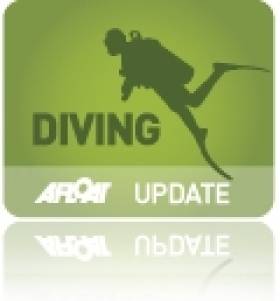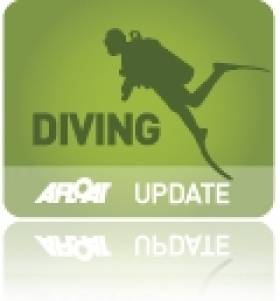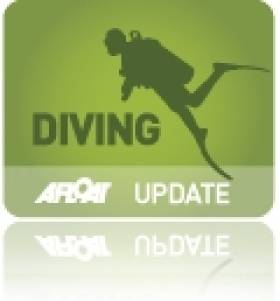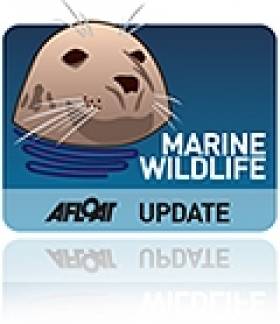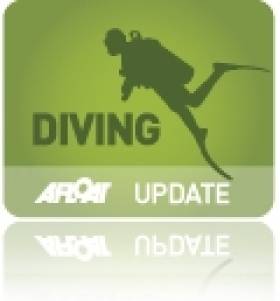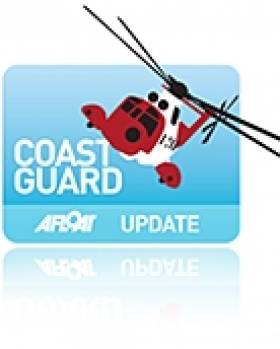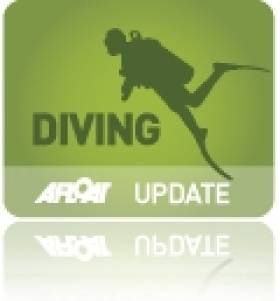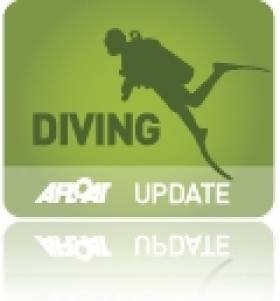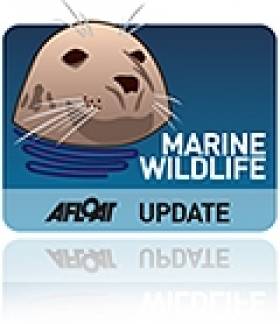Displaying items by tag: diving
Irishman Drowns While Diving Off Thailand
#Diving - The Irish Times reports that an Irishman has died in a diving accident in Thailand.
Twenty-nine-year-old Colin Callanan from Cork drowned off the island of Koh Tao off the east coast of the South East Asian country on Friday 12 April.
The exact circumstances surrounding his death have not yet been announced.
Callanan was diving in his spare time while on a work trip to the country. He had been based in Perth, Australia for the last six years, and was employed by an air conditioning firm since 2010.
The Irish Times has more on the story HERE.
Dive Ireland 2013 Is 'Huge Success'
#Diving - The Irish Underwater Council (CFT) reports the "huge success" of the 22nd annual Dive Ireland expo in Athlone at the weekend.
The two-day event at the Hodson Bay Hotel welcomed "speakers from near and far as well as photography workshops and a fully loaded international trade fair" - not to mention the CFT National Dive Conference and AGM.
Ahead of the expo, Minister for Arts, Heritage and the Gaeltacht Jimmy Deenihan commented on the role of SCUBA clubs and diving centres in Ireland's national tourism infrastructure in promoting this country's dive sites.
In the foreword to the recently published Warships, U-boats and Liners, he also wrote of the Government's commitment to developing its archive of wrecks in Irish waters.
“With the support of responsible dive centres and local dive clubs ... these wrecks can be explored now and into the distant future by visitors from home and abroad.”
According to the CFT, local authorities are also starting to recognise the importance of developing aquatic activities to encourage tourism.
One example is Mayo County Council's Blue Ways list of swimming and snorkelling sites along the county's coast, which complements its Green Ways walking trails.
The council also highlighted the importance of heritage among Ireland's diving community, and their role in discoveries such as the Viking-era swords retrieved from the River Shannon near Banagher last autumn, as the Offaly Independent reports.
Irish Diver At Home In The Philippines
#Diving - The Daily Inquirer in the Philippines turns the spotlight on Irish diver David Joyce, who together with British business partner Matt Reed runs the Evolution diving school in northern Cebu which specialises in technical dives such as wreck explorations, and more recently the recovery of a downed aircraft.
A former TV producer and director, Joyce tells how he met Reed during a holiday in the Philippines in 2008 and suggested the idea of setting up shop in the country together.
Five years on and the pair now employ 24 people across 10 properties, training locals and tourists alike in the more technical aspects of diving, going deeper with more specialised equipment.
“Everything has to be calculated," says Joyce. "When you return to the surface, it has to be slow taking 90 minutes to two hours or 3 meters per minute).
You have to be prepared—four tanks containing different gases, regulators and rebreather units have to be on standby."
Aside from their particular interest in wreck dives - including the discovery of what might be the wreck of the MV Pioneer Cebu, which sank in 1966 with 262 passengers aboard - the duo are dedicated to preserving the natural resources of their tropical island paradise.
That involves working with the local coastguard to prevent destruction of delicate coral reefs and the decline of the catch for local fishermen.
The Daily Inquirer has much more on the story HERE.
Tangled Dolphin Seeks Help From Divers
#MarineWildlife - The Irish Examiner reports on the extraordinary story of a bottlenose dolphin who turned to a group of divers for help to free it from a fishing line.
The video above captures the touching scene when the cetacean approached the divers as they filmed a group of manta rays in the Pacific waters near Kona in Hawaii.
As the footage shows, the dolphin positioned itself in such as way as to allow diver Keller Laros to cut the fishing tackle that was tangled tightly around its midsection and remove the hook from its left pectoral fin.
After the dolphin took to the surface for a quick breather, the divers were able to free it from the line and allow it to swim away unharmed.
Dive Ireland Expo Returns To Athlone For 2013
#Diving - The Dive Ireland expo heads to Athlone in 2013 with a full weekend of speakers, exhibits and workshops for divers and snorkelers of all levels.
This year's hosts at the Athlone Sub Aqua Club have announced details of the 22nd-annual dive show from 2-3 March 2013 at the Hodson Bay Hotel, which also doubles as the AGM for the Irish Underwater Council (CFT).
Speakers lined up for this year include renowned wreck diver Barry McGill, cave divers Jim Warney and Jason Masterson, limit-pushing free diver Feargus Callaghy and snorkelling advocate Victor Kutischev, as well as representatives from marine wildlife conservation group Sea Shepherd.
Just like last year, Dive Ireland 2013 will also feature a wide array of exhibitors to cater for all types of diver interests - and entry for each day costs just €5.
The Athlone Sub Aqua Club has more details on the Dive Ireland 2013 programme HERE.
MLA Dallat Welcomes Malin Head Reprieve
#Coastguard - East Londonderry MLA John Dallat has welcomed the news that the Irish Coast Guard station at Malin Head will remain open.
The SDLP politician had previously sought the support of Northern Ireland's Minister of State Mike Penning to help protect the Donegal coastguard station from closure in the wake of the 'value for money' report commissioned by Irish Transport Minister Leo Varadkar.
Last week Minister Varadkar made a U-turn on proposals to close one or both of the stations at Malin Head and Valentia Island in Co Kerry, following vocal protests by coastal communities in both areas.
As BBC News reports, Dallat's interest in Malin Head dates back to 1973, when he met divers salvaging items from the wreck of the Titanic sister ship Laurentic, which was sunk by mines off Lough Swilly in 1917.
Dallat joined the crew to salvage for brass and copper machinery from the wreck, but on the way to the site their boat experienced engine trouble.
It was only by contacting Malin Head that they were able to receive assistance from a passing coal boat - and Dallat believes he would not be here today if not for that coastguard radio call.
BBC News has more on the story HERE.
Divers Search For Balls Sunk By Golfing Legend
#DIVING - Diver Gus O'Driscoll and four members of the Delta Specialist Diving Club are currently searching the bed of Lough Salt in Donegal for a number of golf balls driven into the water more than 100 years ago by the legendary Old Tom Morris.
The Belfast Telegraph reports that 20 of the golfer's own rubber balls were hit into the lake during an exhibition in 1891. Though worth a shilling a piece at the time, today they are worth a whopping €20,000 each.
The only obstacle in the path of the intrepid divers is the mountain of golf balls they have to sift through to find the exceedingly rare 'gutta perches'.
"There are literally thousands of balls at the bottom of Lough Salt because stopping off to hit golf balls there has been a tradition going back to Morris's time," said O'Driscoll.
If they do strike it lucky, the divers plan to donate their finds to the nearby Rosapenna Golf Club, whose course was designed by Old Tom himself.
Black Tie Gala for Galway Student Sub Aqua Club
#DIVING - Dry suits and SCUBA gear were swapped for tuxedos and ballgowns recently as the NUIG/GMIT Sub Aqua celebrated its 50th anniversary ball at the Galway Bay Hotel.
Guest speakers on the night of dinner and dancing included as Professor Paul Ryan, Irish Underwater Council president Richard Thorn, Christie O’Toole and current club diving officer and captain Cian McFadden shared their memories and appreciation for the club.
The evening also featured a fundraising raffle with prizes such as a Pathfiner watch worth €300, donated by Richard Quinn Jewellers, and two days driving and accommodation for two in Antrim courtesy of Aquaholics.
The celebrations came just weeks after the club officially launched its new RIB - named Alice Perry - at a ceremony in NUI Galway, as previously reported on Afloat.ie.
Living the Wildlife Visits 'Underwater Ireland'
#DIVING ON TV - The latest episode of RTÉ One's natural history series Living the Wildlife takes a look at the secrets of 'Underwater Ireland'.
Presenter Colin Stafford-Jones goes diving with renowned underwater wildlife photographer Nigel Motyer, who has had photographs published in National Geographic magazine, to find a conger eel in Killary Harbour, Co Mayo.
Killary is Ireland's only fjord, which means that diving is possible all year round. But SCUBA diving is not the only way to access the underwater world - snorkelling is a cheaper and more practical way, as Victor Kutischev of the website Underwater Ireland demonstrates.
"Victor has seen some remarkable things over the last few years," says Stafford-Jones. "The triggerfish he filmed in Kerry, which we see in the show look absolutely extraordinary; it makes me want to throw on a mask and snorkel right now."
Stafford-Jones also visits old friend Dave Tilley on Sandymount Strand in Dublin Bay, where he shows how to gather a sustainable lunch from the clean waters of the bay - such as the razor clams regularly found on our beaches.
Catch the programme again tomorrow night (Monday 5 November) at 8.30pm on RTÉ One, or click HERE to view via RTÉ Player (available till 22 November in Ireland only).
Conference Calls On UK Govt to 'Save Our Irish Sea'
#MARINE WILDLIFE - Marine experts are calling on the UK public to pile pressure on their government to create Marine Conservation Zones (MCZs) to help protect and restore marine wildlife in the Irish Sea and around the British coast.
The Living Seas North West Conference in Cumbria recently was a call to arms for marine experts and the public to join forces to protect the oceans.
And organisers the North West Wildlife Trusts used the event to press support for nature reserves in the Irish Sea as part of a UK-wide campaign by The Wildlife Trusts for 127 MCZs around the United Kingdom.
Callum Roberts, Professor of Marine Conservation at the University of York, described areas off the Isle of Man which have never been dredged as “carpeted with life”.
He said: “In the 19th century the Irish Sea bed was crusted with oysters. Today it is not just a sea different in the quantity of the wildlife it is different in the quality of the habitats in which that wildlife lives.”
Prof Roberts described how a study showed that dredging to catch 28,000 prawns also caught 12,000 other fish, most of which were thrown away. He also spoke of dives where he has seen the seabed damaged in huge areas by trawling.
“Over-fishing is not the only thing going on in the oceans," he said, "they are also affected by climate change and pollution. Our seas are changing faster than at any other time in human history.”
Prof Roberts said he was not against fishing, but that conservationists and the fishing industry need to find some common ground. “The prosperity of wildlife and the fishing industry depend on it," he said.
Meanwhile, The Wildlife Trusts marine protected areas manager Richard White spoke about the problems caused "by all the things that human activity is doing wrong".
He added: "We are trying to increase the resilience of our marine wildlife. The critical part is that we are doing this by trying to create Marine Conservation Zones.”
Pollution was highlighted by TV star and diver Paul Rose and Caroline Salthouse of the North West Coastal Forum.
“A huge problem is ocean debris," said Rose. "In 43 years of diving I am beginning to see more plastic and less fish. It is an issue that we must use to get people engaged in what is going on in our seas.”
Salthouse called for the public not only to sign the Wildlife Trusts’ new 'Petition Fish', but also to write to the British government as individuals.
More details about the Marine Conservation Zones and Petition Fish can be found at www.wildlifetrusts.org/living-seas


























